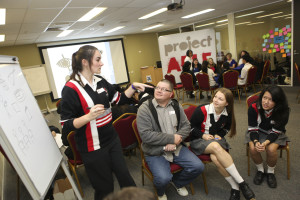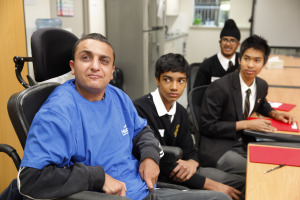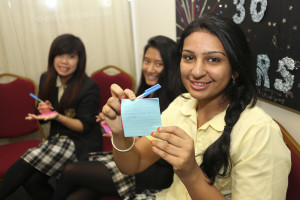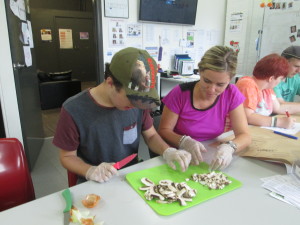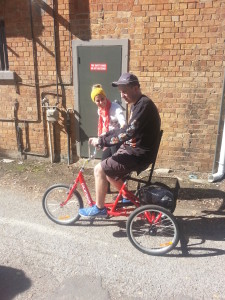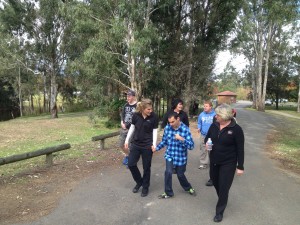My name is Alison O’Toole. I am a Regional Manager with Lifestart. Life Start supports children and young people with a disability or developmental delay as well as their families and carers. I’ve been in this role for nearly two years. Before this I worked for 9 years in different places around the world as an Occupational Therapist (OT).
I knew I wanted to be an OT in year 9. I did my work experience with an OT working with children with cerebral palsy. The experience really stuck with me. The OT there was doing simple but effective work with the children in a preschool setting. I was really inspired.
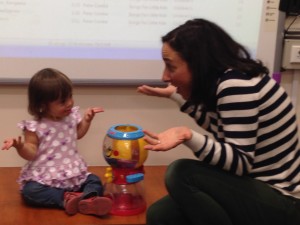 As an OT you look at all the little things we do throughout our day that fulfil us. It could be socialising. It could be physically how we perform certain tasks- tying shoelaces, feeding oneself, hygiene related skills. Or it could be the more foundational areas of development such as concentration, attention and self-regulation. How we stay organised in different environments. These are some of the things areas that an OT would look at.
As an OT you look at all the little things we do throughout our day that fulfil us. It could be socialising. It could be physically how we perform certain tasks- tying shoelaces, feeding oneself, hygiene related skills. Or it could be the more foundational areas of development such as concentration, attention and self-regulation. How we stay organised in different environments. These are some of the things areas that an OT would look at.
Being an OT took me both overseas and to outback Australia. I worked in the UK and Canada in the disability sector before returning to Australia and working in Outback NSW and Sydney. I have supported children with learning difficulties and disabilities in a range of different settings.
I’ve always been really passionate about social inclusion; I believe that everyone has a place in our community and should feel valued. I also believe that everyone should have a place in their local school. The role of early intervention is to ensure children with a disability and their families believe this is possible, and the right supports are put in place to ensure they are able to participate in their community. A lot of opportunities are opened up when you use a strength based approach and empower the child and family.
The work that I do with families tends to be long term which means that you develop strong relationships with families and are part of their journey.This has really resonated with me on an emotional level. Also, every child is different. Every family situation is different and unique. So every day of work is so completely different and that’s so exciting and stimulating.
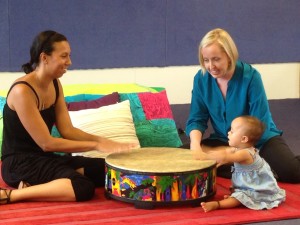 Working with children is important because in those early years children are still developing their sense of self, who they are in the world. And obviously the amount of learning that happens in those early years is massive. So much learning and development comes through play, so an important part of the role of an OT is using a play based approach to skill development. There’s a lot of intense wiring happening in the brain in those early years and when you’re able to support a child’s development at this stage it can have a huge impact. Most importantly, you’re connecting with the child’s sense of self, their belief in themselves and their place in the world. Who they are as a learner, a peer, a friend, a son or daughter.
Working with children is important because in those early years children are still developing their sense of self, who they are in the world. And obviously the amount of learning that happens in those early years is massive. So much learning and development comes through play, so an important part of the role of an OT is using a play based approach to skill development. There’s a lot of intense wiring happening in the brain in those early years and when you’re able to support a child’s development at this stage it can have a huge impact. Most importantly, you’re connecting with the child’s sense of self, their belief in themselves and their place in the world. Who they are as a learner, a peer, a friend, a son or daughter.
To illustrate, I worked with a little boy in a remote outback community who had so many strengths and was just this amazingly social child. However, he found it really hard to stay organised in some environments. This resulted in a lot of anti-social behaviours. His placement at the school was in jeopardy but the nearest school was nearly 100kms away. This was enormously stressful for the family and the school. I was able to work with the child, teacher, school and family, to bring everyone together and find ways to support him at school. Everyone gained a better understanding of the boy and what he needed to be successful at school. I also worked directly with the boy and his peers around appropriate ways to engage with each other. It made such a big difference to the school, the family and of course the child.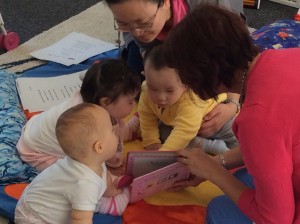
If someone wanted to work with children in the disability sector I would say this. No two children are the same so no two days will ever be the same. But the opportunity to make a meaningful contribution, to change a person’s life, their family and community, makes the sector such a satisfying place to work in because you know you’re making a real difference.
…..
WANT TO MAKE A DIFFERENCE IN THE LIVES OF CHILDREN AND THEIR FAMILIES? START WITH A PROJECT-ABLE WORKSHOP. WORKSHOPS ARE AVAILABLE THROUGHOUT TERM 3.

